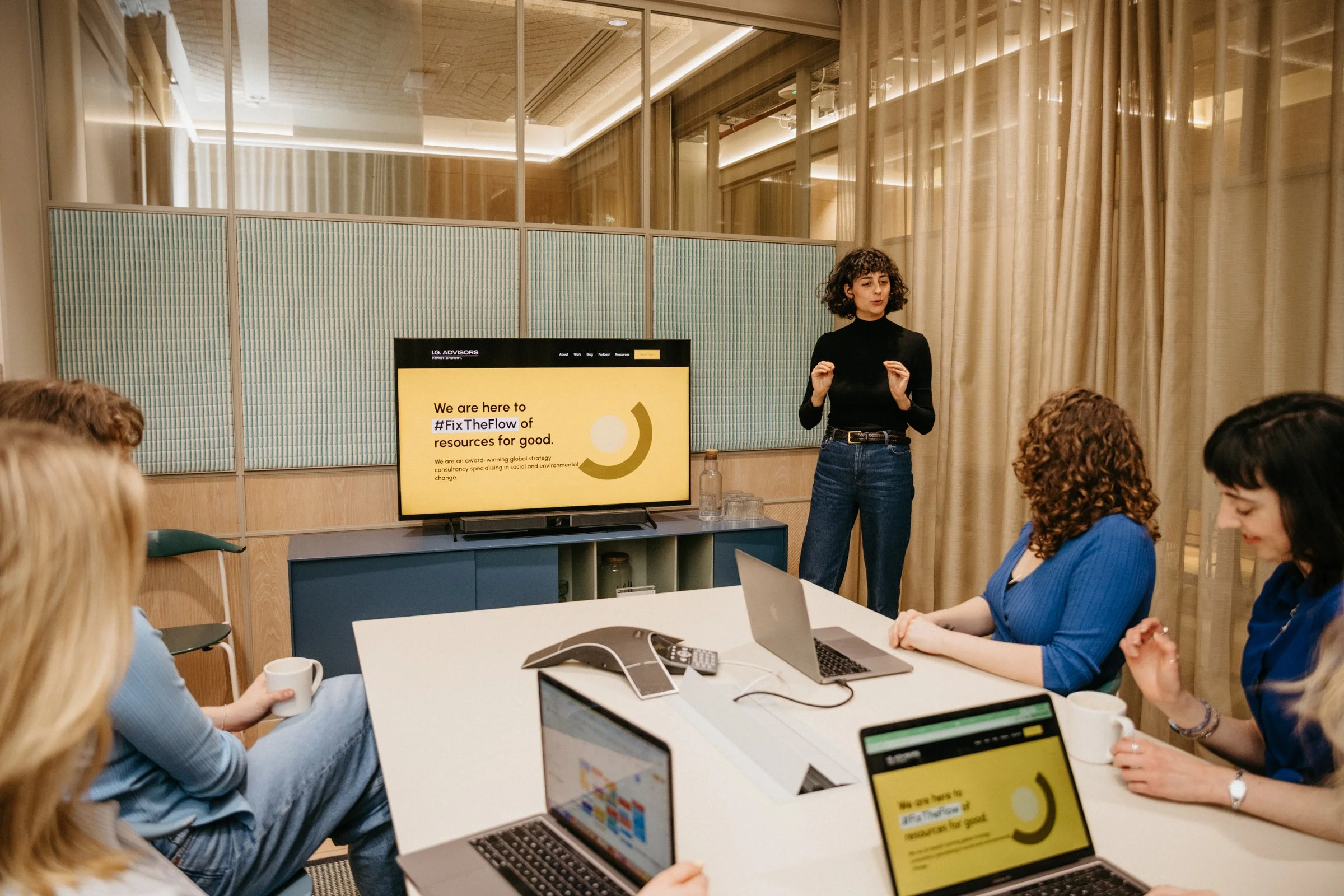Digital Fundraising in a Racialised World — Challenges and Opportunities for Funders and Fundraisers
New I.G. Insights report explores how fundraisers and funders can support digital fundraising for racial justice issues
By 2018, brutal government cuts to local authority budgets had been passed onto frontline services for years, particularly specialist services working with communities facing racial injustice and marginalisation. Seeing this crisis unfold across our community of clients and partners, we at I.G. Advisors (I.G.) decided to make it one of our Sector Transformation focus areas for that year.
We sought to contribute to a solution — making best use of what we had to offer, in partnership with The GMSP Foundation and Social Misfits Media, we invited a selection of frontline BME-led women’s organisations to join a collaborative crowdfunding campaign, and ended up supporting five brilliant partners in the development of their long-term fundraising and communications skills, whilst also directly raising funds online.
Everything we did together was based on best-practice expertise in digital fundraising and crowdfunding, so imagine our frustration when we didn’t meet our targets for the campaign! We extended it for another year, but still fell short of what we had wanted to raise. When we did our debriefing sessions with the organisations, we heard a lot of comments that boiled down to: ‘Funders think we just need to learn how to do this, or try harder, but online fundraising is completely different when you talk about racism, and approaches needed to succeed are also completely different’.
It was this experience that led us to Unbound Philanthropy, who had seen similar challenges in supporting digital fundraising within their Migrant grantee portfolio, and Lightful, who had noticed the differing needs of BAME users on their BRIDGE training programme. Together with The Ubele Initiative and Money4YOU, who both provide specialist support for BAME-led organisations, we embarked on a research process to support the sector to see more success when digitally fundraising for racial justice work, and highlight opportunities for funders to support organisations with getting there.
Since we began this work, COVID-19 has led to a rise in the number of organisations turning towards digital fundraising to sustain their work and rise to new pandemic-induced challenges. Increasingly, digital skills and expertise are what underpins the success of organisational, political and community objectives for all organisations. The need to explore alternative fundraising approaches has proven particularly urgent for organisations working on racial justice during the pandemic; yet, these same groups continue to face a number of unique barriers to successfully engaging in, and benefiting from, digital fundraising mechanisms and campaigns.
So, today, we’re proud to launch our Digital Fundraising & Racial Justice report, which you can read here. We hope this report will provide learnings that go beyond standard fundraising advice, to pragmatically unpick and address the racial dynamics at play in digital fundraising. We know the reasons for the challenges are not as simple as a lack of skills or effort, and we want to disrupt the way the sector understands, talks about, and addresses the challenges of digital fundraising and racism. With this report we want to support organisations working on racial justice to successfully leverage digital fundraising practices, and ensure funders know how to contribute to that success.
Our report highlights a number of key challenges, each falling under one of the following three themes:
Hostile Digital Environment — The bias, stereotypes, discrimination, or outright bigotry that impact interactions online and the building blocks of donor relationships.
White Donor Normativity — The self-reinforcing phenomenon of assuming that white donors are the ‘norm’, and tailoring fundraising practice, training and data accordingly.
Triple Glazed Glass Ceiling — The perfect storm of challenges with capacity, confidence, and competition when it comes to digital fundraising.
These are huge issues. Dismantling white supremacy culture and eliminating the systemic racism underpinning many of the barriers to digital fundraising will not happen overnight, but there are promising opportunities within arm’s reach to make the online fundraising environment safer, accessible, and more welcoming for those carrying out vital work in the racial justice space. At the end of the report we share 10 opportunities through which fundraisers and funders can support greater success in digital fundraising for racial justice issues.
If you’re a fundraiser, I hope you feel seen through the shared experiences in this report, and more empowered to navigate the landscape of digital fundraising in a racialised world.
If you’re a funder, I hope you find this new framing of digital fundraising illuminating, and can see your path to creating an enabling environment for your grantees who tackle racial injustice to safely and sustainably gain online traction for their work.
And if you’re an everyday donor, I hope you can see the power you have to combat the challenges organisations face when trying to engage you online, and you can be part of a new movement to change that.
We’re so grateful for the time, wisdom and insights shared by the partners we worked with on this project. We have cited the many incredible pieces of research, thought leadership and advocacy that have come before this, so we hope that everyone makes full use of the references provided at the end of the report as an essential reading list of guidance, insight, and calls to action on racial justice.
To read the report, download it here.































